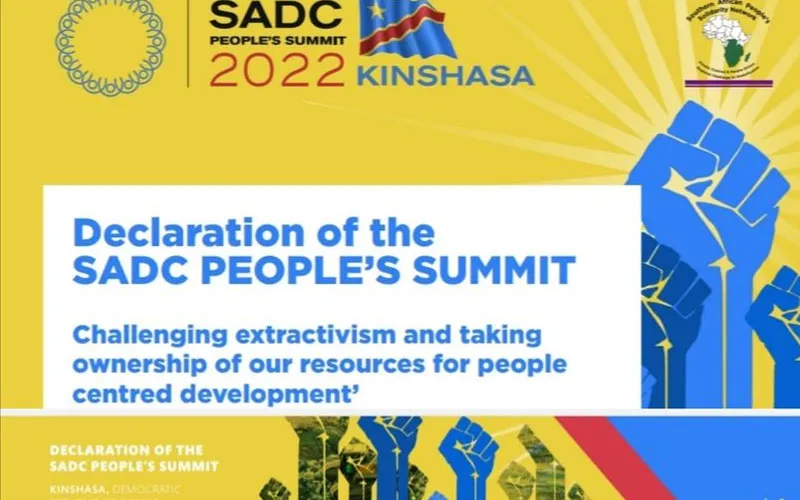Lusaka, 30 August, 2022 / 8:55 pm (ACI Africa).
Civil society organizations (CSOs) from the Southern African Development Community (SADC) region have expressed concern about the decreasing civic space in member nations of the regional bloc.
In a statement issued following the August 16-18 SADC People’s Summit, officials of the CSOs who include Caritas Zambia say human rights defenders and dissenting voices “have difficulty expressing their views holding leaders accountable and accessing fundamental freedoms amidst worsening human rights conditions and shrinking democratic space across the SADC region.”
“We share concern with the increasingly shrinking civic space characterized by violations of these rights, harassment of civil society actors, and enactment of repressive laws with unclear, overbearing, overstepping, or outright brutal enforcement parameters by state security agencies,” they say in the statement circulated Sunday, August 28.
The CSO officials from the regional economic community that brings together 16 member states, including Angola, Botswana, Comoros, Democratic Republic of Congo (DRC), Eswatini, Lesotho, Madagascar, Malawi, Mauritius, Mozambique, Namibia, Seychelles, South Africa, Tanzania, Zambia and Zimbabwe, regret “the increased cases of state-sponsored harassment and abuse targeting student leaders and young Human Rights Defenders.”
They have also called on the 16 member states of SADC “to align legislative frameworks, policy and practice to constitutional provisions that guarantee civic and political rights.”








